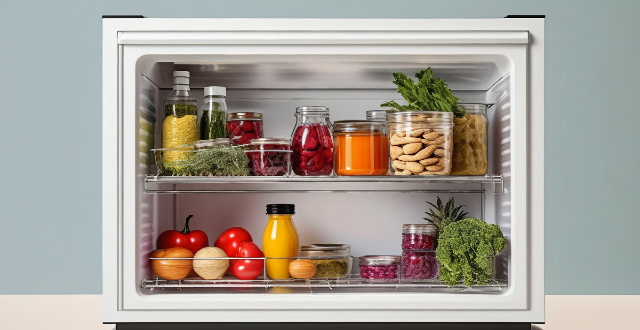Natural preservatives such as salt, sugar, and vinegar can be used to extend the shelf life of food without compromising its taste or nutritional value. Salt works by dehydrating food and creating an environment that is inhospitable to bacteria and other microorganisms. Sugar also draws moisture out of food and has antimicrobial properties. Vinegar is a sour liquid made from fermented alcoholic beverages or other sources of sugar, which has antimicrobial properties that make it an effective natural preservative for pickling vegetables, fruits, and even meat. These natural preservatives can be used in various ways, such as brining, dry curing, pickling, canning, jelly making, drying, marinating, and brining.

Natural Preservatives for Extending Food Shelf Life
Introduction
Food preservation is an essential aspect of food safety and quality. Natural preservatives are substances that can be used to extend the shelf life of food without compromising its taste or nutritional value. In this article, we will discuss some natural preservatives that can be used to preserve food.
Salt
Salt is one of the oldest and most commonly used natural preservatives. It works by dehydrating food and creating an environment that is inhospitable to bacteria and other microorganisms. Salt can be used to preserve meat, fish, and vegetables.
Benefits of Salt as a Preservative
- Dehydration: Salt draws moisture out of food, making it difficult for bacteria to survive.
- Antimicrobial properties: Salt has antimicrobial properties that inhibit the growth of bacteria and other microorganisms.
- Flavor enhancement: Salt enhances the flavor of food, making it more palatable.
How to Use Salt as a Preservative
- Brining: Soaking food in a saltwater solution is an effective way to preserve it.
- Dry curing: Rubbing salt onto the surface of food is another method of preservation.
- Pickling: Pickling involves soaking food in a salt and vinegar solution, which not only preserves it but also adds flavor.
Sugar
Sugar is another natural preservative that works by drawing moisture out of food and creating an environment that is inhospitable to bacteria and other microorganisms. Sugar can be used to preserve fruits, jams, and jellies.
Benefits of Sugar as a Preservative
- Dehydration: Like salt, sugar draws moisture out of food, making it difficult for bacteria to survive.
- Antimicrobial properties: Sugar has antimicrobial properties that inhibit the growth of bacteria and other microorganisms.
- Flavor enhancement: Sugar enhances the flavor of food, making it more palatable.
How to Use Sugar as a Preservative
- Canning: Canning involves heating food in a sugar syrup solution to kill bacteria and preserve the food.
- Jelly making: Making jelly involves boiling fruit with sugar and pectin to create a gel-like consistency that preserves the fruit.
- Drying: Drying fruit with sugar is another method of preservation that extends its shelf life.
Vinegar
Vinegar is a sour liquid made from fermented alcoholic beverages or other sources of sugar. It has antimicrobial properties that make it an effective natural preservative for pickling vegetables, fruits, and even meat.
Benefits of Vinegar as a Preservative
- Acidity: The acidity of vinegar creates an environment that is inhospitable to bacteria and other microorganisms.
- Antimicrobial properties: Vinegar has antimicrobial properties that inhibit the growth of bacteria and other microorganisms.
- Flavor enhancement: Vinegar enhances the flavor of food, making it more palatable.
How to Use Vinegar as a Preservative
- Pickling: Pickling involves soaking food in a vinegar solution, which not only preserves it but also adds flavor.
- Marinating: Marinating meat or fish in vinegar helps to tenderize the meat and preserve it.
- Brining: Brining involves soaking food in a vinegar solution before cooking or smoking, which helps to preserve it and add flavor.